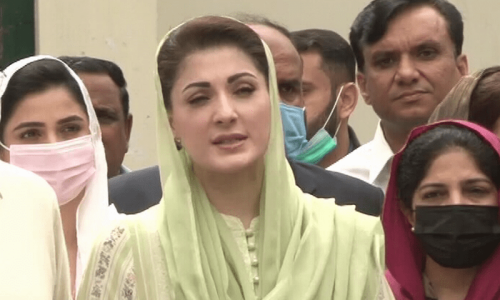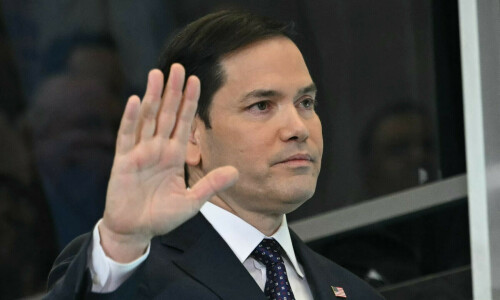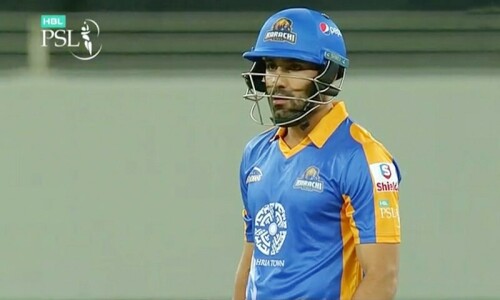ISLAMABAD: Amid K-Electric’s demand for charging about Rs3.45 per unit additional fuel cost from its consumers for electricity consumed in September, the National Electric Power Regulatory Authority (Nepra) on Thursday questioned about contingencies in case of a cheaper winter tariff results in higher demand for expensive imported fuels.
At a public hearing presided over by Nepra Chairman Tauseef H Farooqui, the regulator also raised questions as to why three-year old fixed rate of Rs12.96 per unit was being offered to spur demand growth when actual electricity cost and its various components, including various fuels costs, had seen sea change.
The regulator has fixed KE’s petition for a formal public hearing on November 3. The KE said its actual fuel cost from all sources had been significantly higher than reference tariff and hence it should be allowed to charge Rs3.454 per unit additional fuel cost in the next billing month to generate Rs6.639 billion additional revenue.
Nepra heard two petitions of the federal government to provide ‘winter incentive package for electricity consumers on incremental consumption’ to domestic, commercial and general service consumers from November 2021 to February 2022 across the country (both Discos and KE) and extension of similar package for KE’s industrial consumers until October 2023 on the pattern of Discos. The regulator reserved its judgement.
Nepra hears centre’s petitions to provide ‘winter incentive package’
While the regulator’s hierarchy raised questions if enough thought had gone into the winter tariff package and the financial settlement mechanism involved, it appeared persuading KE’s management to be part of the incentive package to support the government initiative to encourage electricity consumption as K-Electric insisted its incremental consumption would come about because of its own expansion plans and demand growth.
“Will not this package make a settlement nightmare,” asked Nepra chairman Farooqui who was also uncertain if the country faced gas shortage how the companies would be able to meet higher electricity demand when water availability in winters would also be very low. “There should not be a situation where we achieve demand growth but do not have the electricity to deliver and cause even bigger crisis,” he said.
The government team said a similar package in 2019-20 had resulted in 16-18 per cent growth in domestic and commercial consumption on the basis of which the government came back with the same package this year. It was reported that a simultaneous move for gas prices to switch load to electricity was also under consideration that would help consumers to have new heating equipment with 2-3 years of cost recovery.
The K-Electric insisted that its actual marginal cost and the special incentive tariff had quite a big difference that would result in higher subsidy requirement. KE’s chief financial officer told the panel that its demand growth was already accounted for in its multi-year tariff (MYT) in the form of macroeconomic conditions and GDP growth rate and Nepra should allow its adjustment in MYT. Mr Farooqui asked the KE team to engage with Nepra and power division’s team to work out a mechanism that could ascertain organic demand growth and due to tinkering with tariff by the government and argued that any change with KE’s MYT would open a Pandora’s box.
Nepra’s member Sindh Rafique Shaikh said business as usual had not turned around the power system over the past 70 years and it would not change over the next 70 years unless the government makes a structural shift and goes for privatisation. He said the government and its entities should have also examined reviewing revenue-based load-shedding that was set years ago when there was power shortage.
The government team told Nepra that the Cabinet Committee on Energy had approved the winter incentive package on incremental consumption for all domestic, commercial, and general services consumers of Discos and KE at Rs12.96 per unit that was about Rs5-6 per unit cheaper than normal tariff.
Published in Dawn, October 22nd, 2021
















































